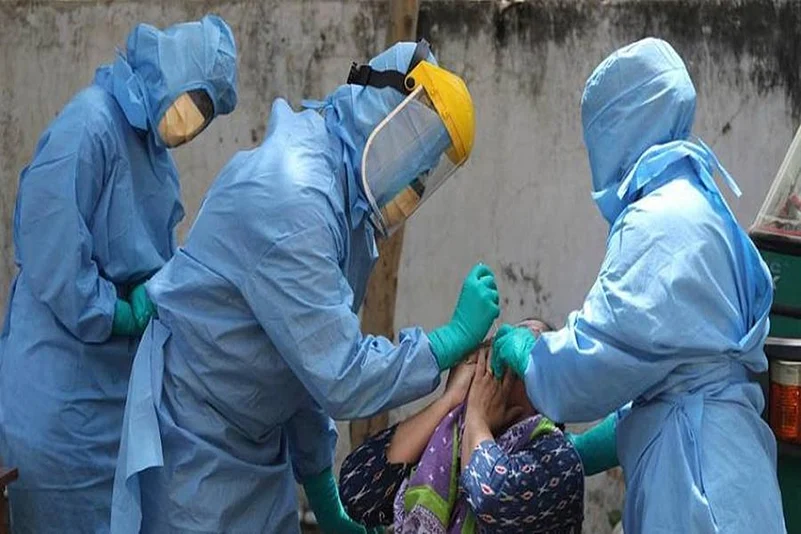With coronavirus mutating at a fast pace and many new variants being discovered all across the globe, scientists are studying the effectiveness of a third booster dose of the Covid-19 vaccine.
This development comes in the backdrop of Pfizer and Moderna announcing that those who received two doses of their Covid-19 vaccines might probably need a booster shot, later this year followed by an annual shot.
At the moment, all Covid-19 vaccines are administered as two shots.
While health experts say that there’s no scientific evidence to suggest that a third booster shot will be more effective and that the recommendation is based on a mere conjecture, vaccine manufacturers have already started conducting trials of the third dose.
Earlier this month, an expert panel of the Drugs Controller General of India (DCGI) had permitted Bharat Biotech to give the third dose of its Covid-19 vaccine Covaxin to a few volunteers in its clinical trials.
Currently, people eligible for inoculation in the country are being administered Serum Institute of India's Covishield and Bharat Biotech’s Covaxin. Both vaccines are being given in two doses within a gap of up to eight weeks. The DCGI has also approved Russia’s Sputnik V Covid-19 vaccine for emergency use authorisation in the country.
Bharat Biotech has proposed a booster dose after six months of the second dose.
Talking about the applicability and effectiveness of a third dose, especially in view of the raging second Covid-19 wave, experts said the third booster dose needs more studies to determine if it will help in fighting infections more effectively.
Samiran Panda, Director of the ICMR National AIDS Research Institute, said if the companies are deciding on giving a third booster dose after two doses then it should be based upon data on immunological memory.
This means that after two doses what is the status of antibody concentration and after how long it comes below a level after which one needs the third booster dose, he said.
“I wonder why the companies are suggesting this and what is the data because Covid-19 we came to know in December 2019 and the vaccines were made in April and August. So we don't have enough data and I think the proposal for the third dose is based on a conjecture rather than the time that needs to lapse after which we will have data on how many shots are needed. So the time has not come as yet,” Panda told PTI.
He said now when these companies are talking about boosters there comes the question of what would these boosters do.
“These boosters are supposed to boost up the immunity to tackle the dwindling concentration of antibodies. It has been found that after 6-9 months the concentration of the antibody comes down but that was mostly in natural infections," Panda said.
"For vaccination, how long does it take to come down is not known because the vaccination drive recently started it has not been even five months,” he said.
India launched its vaccination drive against Covid-19 on January 16 and the health ministry on Saturday said that so far 12,25,02,790 doses have been administered.
Dr Giridhara R Babu, professor and the Head of life-course epidemiology at the Public Health Foundation of India, said one needs to study and see if the booster dose will help in fighting the disease more effectively.
“How long the protection lasts, based on that it needs to be decided when a booster has to be given. One needs to study and see if the boosters will help in fighting the disease more effectively,” he said.
Another healthcare expert said the third dose may play a crucial role in future but at present, there is not enough data to support this claim.
“Like flu shots, one might need the booster shots every year but it is too soon to make that assumption as the disease (COVID-19) itself is very new and it has not even been a year since the vaccines have come out. We need more data and study,” the expert said.
(With PTI inputs)
















